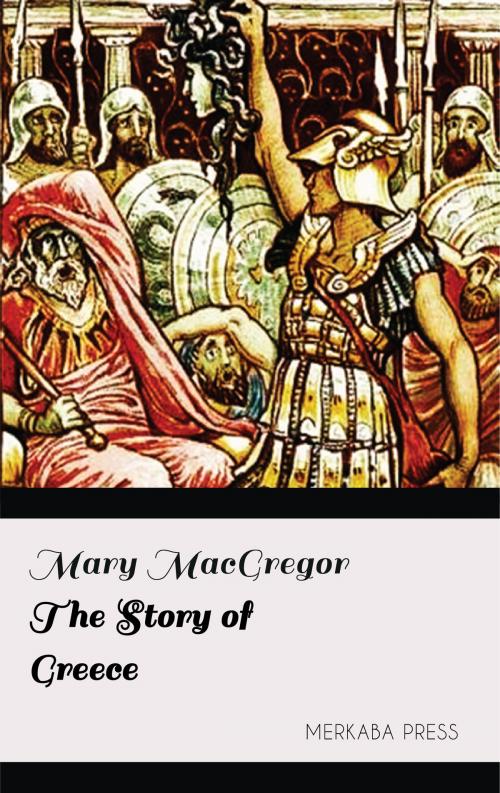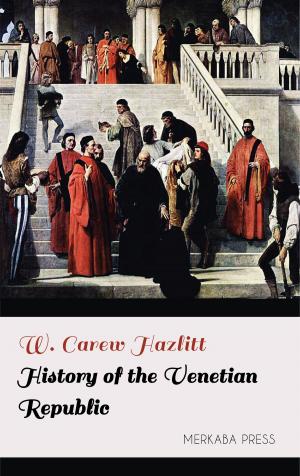| Author: | Mary MacGregor | ISBN: | 6610000020478 |
| Publisher: | PublishDrive | Publication: | July 7, 2017 |
| Imprint: | Merkaba Press | Language: | English |
| Author: | Mary MacGregor |
| ISBN: | 6610000020478 |
| Publisher: | PublishDrive |
| Publication: | July 7, 2017 |
| Imprint: | Merkaba Press |
| Language: | English |
THE story of Greece began long, long ago in a strange wonderland of beauty. Woods and winds, fields and rivers, each had a pathway which led upward and onward into the beautiful land. Sometimes indeed no path was needed, for the rivers, woods, and lone hill-sides were themselves the wonderland of which I am going to tell.
In the woods and winds, in the trees and rivers, dwelt the gods and goddesses whom the people of long ago worshipped. It was their presence in the world that made it so great, so wide, so wonderful.
To the Hellenes, for that is the name by which the Greeks called themselves, there were eyes, living eyes in flowers, trees and water. 'So crowded full is the air with them,' wrote one poet who lived in the far-off days, 'that there is no room to put in the spike of an ear of corn without touching one.'
When the wind blew soft, the Hellenes listened to the whispering of a voice. When it blew rough, and snatched one of the children from their midst, they did not greatly grieve. The child had but gone to be the playmate of the gods.
The springs sparkled clean, for in them dwelt the Naiads or freshwater nymphs, with gifts as great as the river gods, who were ofttimes seen and heard amid the churning, tossing waters.
In the trees dwelt the Dryads, nymphs these of the forest, and whom the Hellenes saw but seldom. Shy nymphs were the Dryads, born each one at the birth of a tree, in which she dwelt, fading away when the tree was felled, or when it withered and died.
Their revels were held in some wooded mountain, far from the haunts of men. Were a human footfall heard, the frolics ceased on the instant, while each Dryad sped swift for shelter to the tree of her birth.
So the gods wandered though the land, filling the earth with their presence. Yet there was one lofty mountain in central Greece, named Mount Olympus, which the Hellenes believed was the peculiar home of the gods. It was to this great mount that the actual roads on which the Hellenes walked each day seemed ever to lead.
On the sides of the mountain, green trees and dark pines clustered close. The summit reached high up, beyond the clouds, so used the ancient people to tell. Here, where no human foot had ever climbed, up beyond the twinkling stars, was the abode of the gods.
What the Hellenes never saw with their eyes, they saw quite clear with their imagination. Within the clouds, where the gods dwelt, they gazed in this strange way, upon marble halls, glistening with gold and silver, upon thrones too, great white thrones, finer far than those on which an earthly king might sit. The walls gleamed with rainbow tints, and beauty as of dawns and sunsets was painted over vast arches of Olympus.
THE story of Greece began long, long ago in a strange wonderland of beauty. Woods and winds, fields and rivers, each had a pathway which led upward and onward into the beautiful land. Sometimes indeed no path was needed, for the rivers, woods, and lone hill-sides were themselves the wonderland of which I am going to tell.
In the woods and winds, in the trees and rivers, dwelt the gods and goddesses whom the people of long ago worshipped. It was their presence in the world that made it so great, so wide, so wonderful.
To the Hellenes, for that is the name by which the Greeks called themselves, there were eyes, living eyes in flowers, trees and water. 'So crowded full is the air with them,' wrote one poet who lived in the far-off days, 'that there is no room to put in the spike of an ear of corn without touching one.'
When the wind blew soft, the Hellenes listened to the whispering of a voice. When it blew rough, and snatched one of the children from their midst, they did not greatly grieve. The child had but gone to be the playmate of the gods.
The springs sparkled clean, for in them dwelt the Naiads or freshwater nymphs, with gifts as great as the river gods, who were ofttimes seen and heard amid the churning, tossing waters.
In the trees dwelt the Dryads, nymphs these of the forest, and whom the Hellenes saw but seldom. Shy nymphs were the Dryads, born each one at the birth of a tree, in which she dwelt, fading away when the tree was felled, or when it withered and died.
Their revels were held in some wooded mountain, far from the haunts of men. Were a human footfall heard, the frolics ceased on the instant, while each Dryad sped swift for shelter to the tree of her birth.
So the gods wandered though the land, filling the earth with their presence. Yet there was one lofty mountain in central Greece, named Mount Olympus, which the Hellenes believed was the peculiar home of the gods. It was to this great mount that the actual roads on which the Hellenes walked each day seemed ever to lead.
On the sides of the mountain, green trees and dark pines clustered close. The summit reached high up, beyond the clouds, so used the ancient people to tell. Here, where no human foot had ever climbed, up beyond the twinkling stars, was the abode of the gods.
What the Hellenes never saw with their eyes, they saw quite clear with their imagination. Within the clouds, where the gods dwelt, they gazed in this strange way, upon marble halls, glistening with gold and silver, upon thrones too, great white thrones, finer far than those on which an earthly king might sit. The walls gleamed with rainbow tints, and beauty as of dawns and sunsets was painted over vast arches of Olympus.















